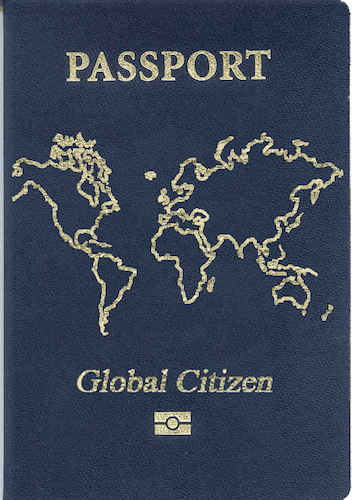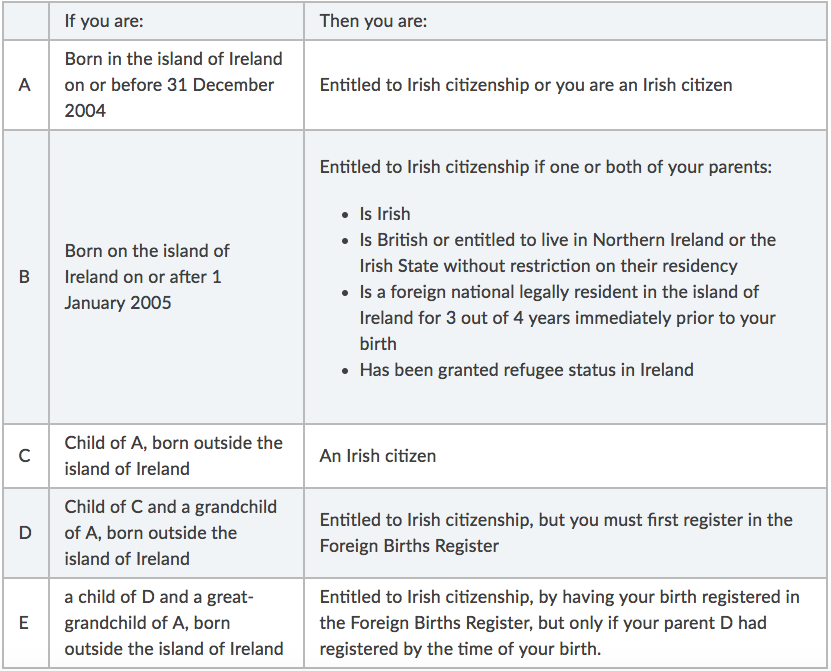(Editor’s note: Be sure to double-verify all details regarding dual citizenship with your attorney and immigration officials.)
Dispatches is all about the global mobility of talent, so we’ve posted a lot about acquiring a second passport. Which mostly comes down to buying citizenship through a sizeable investment in countries such as Greece and Malta. But we’ve somehow overlooked another route to greater global mobility: dual citizenship through citizenship by descent.
 We’re thinking maybe you did, as well.
We’re thinking maybe you did, as well.
We’ve noticed increasing traffic for our posts about investment visas and other options and we’re guessing – just guessing, mind you – Brexit and the election of Donald Trump has something to do with that.
As an American teenager, I knew a lot of first-generation Jewish, Italian, Lebanese, Syrian and German kids, some of whom had dual citizenship.
I also grew up being told that when a double-national American reaches 18 years old, he or she must choose a passport.
So, when The Donald was elected president, I started thinking about how sweet it would be to have a second passport and not have to go through the rigmarole of applying for long-term residence status.
Or having to leave the Schengen Area every 90 days like my sister Maggie, who typically spends half the year in Greece and/or France/and or the United Kingdom.
So, I dived into a bunch of technical information, and here’s what I found out: Several countries in Europe, as well as Israel, have what are commonly called “citizenship by descent” programs. That is, if you can prove your family connects back to say, Italy, you could be eligible for a second passport.
Can Americans even have a second passport?
But before we get to that, what is the legal ruling on Americans even having a second citizenship?
The first stop is the Travel.State.Gov website of the U.S. Department of State.
And the answer is, “Maybe.” This is a bit of a Catch 22.
U.S. law “does not mention dual nationality” or require citizens to choose one nationality or another, according to TravelState.gov.
Now this is the tricky part: A person who is “automatically granted” another nationality doesn’t lose U.S. nationality.
By that, the government apparently means that if you are born in the U.S. to foreign parents, you can have their nationality and also carry an American passport. (Interestingly, if you’re “automatically granted” citizenship and a second passport through an investment in, say, Malta, you’re good to go.)
BUT, if you’re a garden-variety American whose parents or grandparents are not foreign and you go and apply for an additional nationality, then you’re probably going to lose your American passport.
This is where it gets interesting
Bottom line: After reading about all this, it really comes down to where you, your parents or your grandparents were born.
You might not realize it, but there is literally a “grandfather clause” for some countries.
You might be eligible for dual citizenship if you were:
• Born in the U.S. to immigrant parents
• Born outside the U.S. to a parent who is an American citizen, and a parent who’s not
Let’s look at some of the ways you can get a second nationality/passport.
Were your grandparents or parents born outside the United States? If they were, there are a number of countries that might grant you citizenship.
Those include:
Italy
This is pretty common: Your grandmother and grandfather were born in the Old Country 100 years ago … does that entitle you to dual citizenship?
Well, there are a lot of websites that say you might be part of the Italian Family through the concepts of jus sanguinis, or law of bloodline or descent, or jure sanquinis, law of soil.
Through jus sanguinis, if your grandfather was an Italian citizen or your father was an Italian citizen when you were born, then it’s likely you’re an Italian citizen. (Italian women didn’t have the right to confer citizenship on children until 1948.)
But as always, there’s the fine print.
Did your grandfather become an American citizen before June 14, 1912? If he did and he renounced his Italian citizenship, then your father – and you – likely lost the right to Italian citizenship. But if they kept dual citizenship, it’s likely you might be entitled to dual citizenship.
Here’s where you can get started.
The Italian embassy in Washington DC has the best info and a good website, which spells everything out pretty clearly.
Even if you are eligible for an Italian passport, it’s going to take a while because you’ll likely have to locate the relevant documents, then submit them.
Again, the Italian Embassy has the complete list of what you’ll need.
Republic of Ireland
Finding out if you’re eligible for an Irish passport is similar to the process for Italy, though not exactly the same.
Again, it comes down to where your grandparents and/or parents were born. (Cousins, etc., don’t count.)
If either of your parents was an Irish citizen who was born in Ireland, then you are automatically a citizen of the Irish Republic (not Northern Ireland) no matter where you were born, according to the Irish citizenship website. But, you’re also an Irish citizen if you were born in Ireland to non-Irish parents.
If you have a grandparent born in Ireland – or if your parent was granted Irish citizenship “or was deemed to be an Irish citizen” before you were born – you can apply to register in the Foreign Births Register.
If you are an Irish citizen, you can apply for an Irish passport and Irish law doesn’t require you to give up your other citizenships.
The website even has a handy chart:

Israel
This is one area I know a little about because as an ethnic Jew, I grew up with Jewish friends. Like Italy, Israel gives automatic citizenship on the principle of jure sanguinis but only to one generation born outside the state. Which of course only dates back to 1948.
Under the “Law of Return,” anyone who is Jewish – that is, his or her mother is Jewish – is theoretically eligible to become an Israeli citizen and get a second passport. (Full disclosure: There are a LOT of places you can’t go on an Israeli passport.)
Getting an Israeli passport hinges on your being declared “Jewish,” and that changes with how much ultra-Orthodox Jews influence the government of the moment. Also, spouses of Jews might be eligible.
But the big unknown is the status of converts to Judaism, or “JBCs” as they’re known in the Jewish vernacular (Jews by Choice). There are a lot of nuances including converts having to get a rabbi to certify they’re not converting just to get Israeli citizenship. Oddly, if you’ve lived in Israel for a number of years, you can become a naturalized citizen even if you’re not Jewish.
Unlike getting Italian or Irish citizenship where you might even already “be in the club,” trust me … you’d already know whether your in this club. Don’t forget: With membership comes responsibility. If you’re dual passport holder, you might owe the Israeli Defense Forces a couple of years right off the bat.
Lithuania
Lithuania is one of the Baltics along with Estonia and Latvia, the poorest of the three with about 20 percent of the population at the poverty level. But it has a fairly liberal citizen by descent program going back to your great grandfather.
But there’s always a catch. To have dual citizenship in Lithuania, you have to prove your family left to avoid political prosecution, not just to have a better life. This could get tricky and might be more trouble than it’s worth.
You can get more information here.
Germany
 File this under cosmic irony.
File this under cosmic irony.
With Brexit, many Brits descended from Jewish (and non-Jewish) refugees who fled the Third Reich are now inquiring whether they can reclaim their German citizenships.
From the Guardian:
“It is somewhat ironic that we [The Association of Jewish Refugees] were founded partly to help people become naturalised British after the war and, 70 years on, we find ourselves in the position of assisting people who want to acquire German and Austrian citizenship because of the recent developments in Britain,” said Michael Newman, who has submitted his own application.
Let’s say you are of German-Jewish descent and your ancestors lost everything to the Nazis including their German citizenship. If that’s the case, Germany confers citizenship on the children and grandchildren of people the Nazis stripped of citizenship between January 30, 1933 and May 8, 1945 because of racial, ethnic or political status.
Otherwise, if your German ancestors took American citizenships, they automatically lost their German citizenships. Or even if they kept their German citizenships, they were required by Germany to renew them every 10 years, but hardly any did, according to all the information we found online.
And anyway, modern Germany doesn’t allow many people to have dual passports unless they have one German parent, or apply for “Beibehaltungsgenehmigung” under which German citizens receiving American citizenship prove they still have important German ties.
I just included it to see if you were still paying attention.
Co-CEO of Dispatches Europe. A former military reporter, I'm a serial expat who has lived in France, Turkey, Germany and the Netherlands.















